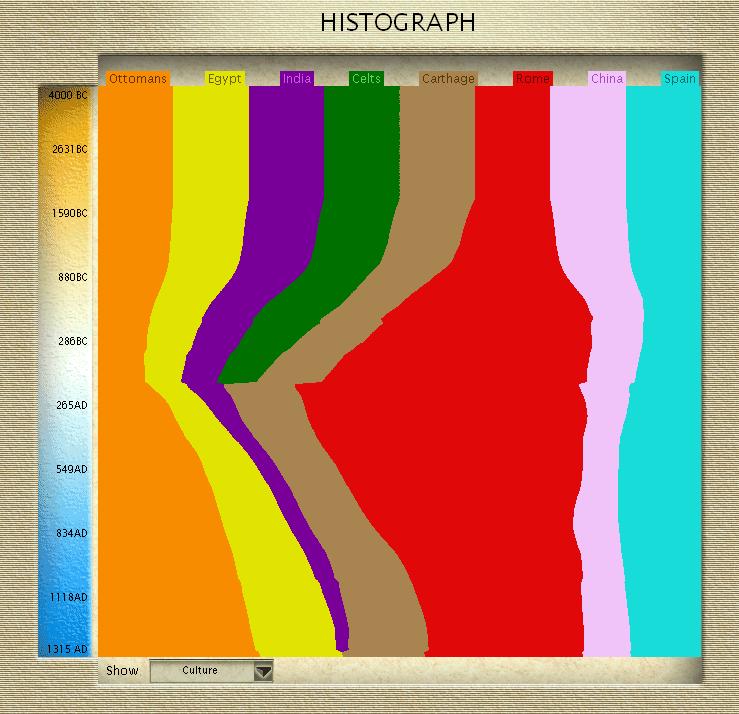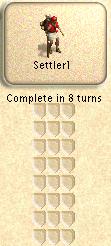cracker
Gil Favor's Sidekick
This special spoiler discussion is a special topic technical discussion about features of the Gotm19-Ottomans game.
This is not a thread for posting general reports about game progress and other aspects of the Gotm19 game that are not listed as the focus of this discussion.
This is also NOT a thread to use to express what you don't like or do not like about the game setup for Gotm19 unless you can base those comments on the RESULTS AND OBSERVATIONS of features about the game that are the intended focus of this discussion.
The Special Topic of this discussion is for use to discuss the game progress of ROME (the Red Civ) in Gotm19-Ottomans. You must have played and submitted the game to have a clear foundation and perspective for this discussion.
There will be many different observations and experiences here because the playing style and approach of almost every player is different:
If you can, post sized down screen shots of Rome from the earliest point in the game where you have full map visibility of their territory??
What do these maps of Rome (mostly uneffected by contamination from your evil Ottoman and Human self) tell you about the early game choices that the AI brain will make when un perterbed by external forces?
Where were the key city placements?
How many cities did Rome have when you met them and how did this number compare to the other three most powerful civilizations in you game at that time??
If you attacked had conflicts with Rome either at home or on the Roman or far off continent, document when these conflicts occured and how the Romans performed militarily??
When you first met Rome how did you obtain as much information about Rome as possible and what were your impressions of Rome? How did these impressions effect you emotionally? How did these impressions effect your game strategy?
Based on your experiences in Gotm17 and Gotm18, what would you have expected Rome to look like if they were totally isolated and alone on an island continent while other cives where in free contact with neighbors on continental landmasses??
What type of military did you use against the Roman landmass and what did this expose about the status of unit upgrades and build priorities for the Roman military??
If you captured or investigated Roman Cities or if you have saves available where you can go back and aritificially investigate Roman cities, how does the status of their infrastructure and population compare to comparable Cities in the Ottoman empire at a similar time in the game?
With these sorts of technical investigative answers, what sort of role did Rome play in Gotm19-Ottomans game and how did this role effect the overall progress and final results of the game. If you think that Rome slowed you down on sped you up try to say how and by how much??
If you feel that Rome had a negative impact on your game, can you now look back at the game and identify any standard features of the game that were available to you and that might have changed your assessment of Rome in adance of the negative impacts?? Did you have any other choices that you might have made in the game based on the information you could see from the in-game advisors and other tools that were available to you??
This is not a thread for posting general reports about game progress and other aspects of the Gotm19 game that are not listed as the focus of this discussion.
This is also NOT a thread to use to express what you don't like or do not like about the game setup for Gotm19 unless you can base those comments on the RESULTS AND OBSERVATIONS of features about the game that are the intended focus of this discussion.
The Special Topic of this discussion is for use to discuss the game progress of ROME (the Red Civ) in Gotm19-Ottomans. You must have played and submitted the game to have a clear foundation and perspective for this discussion.
There will be many different observations and experiences here because the playing style and approach of almost every player is different:
If you can, post sized down screen shots of Rome from the earliest point in the game where you have full map visibility of their territory??
What do these maps of Rome (mostly uneffected by contamination from your evil Ottoman and Human self) tell you about the early game choices that the AI brain will make when un perterbed by external forces?
Where were the key city placements?
How many cities did Rome have when you met them and how did this number compare to the other three most powerful civilizations in you game at that time??
If you attacked had conflicts with Rome either at home or on the Roman or far off continent, document when these conflicts occured and how the Romans performed militarily??
When you first met Rome how did you obtain as much information about Rome as possible and what were your impressions of Rome? How did these impressions effect you emotionally? How did these impressions effect your game strategy?
Based on your experiences in Gotm17 and Gotm18, what would you have expected Rome to look like if they were totally isolated and alone on an island continent while other cives where in free contact with neighbors on continental landmasses??
What type of military did you use against the Roman landmass and what did this expose about the status of unit upgrades and build priorities for the Roman military??
If you captured or investigated Roman Cities or if you have saves available where you can go back and aritificially investigate Roman cities, how does the status of their infrastructure and population compare to comparable Cities in the Ottoman empire at a similar time in the game?
With these sorts of technical investigative answers, what sort of role did Rome play in Gotm19-Ottomans game and how did this role effect the overall progress and final results of the game. If you think that Rome slowed you down on sped you up try to say how and by how much??
If you feel that Rome had a negative impact on your game, can you now look back at the game and identify any standard features of the game that were available to you and that might have changed your assessment of Rome in adance of the negative impacts?? Did you have any other choices that you might have made in the game based on the information you could see from the in-game advisors and other tools that were available to you??



